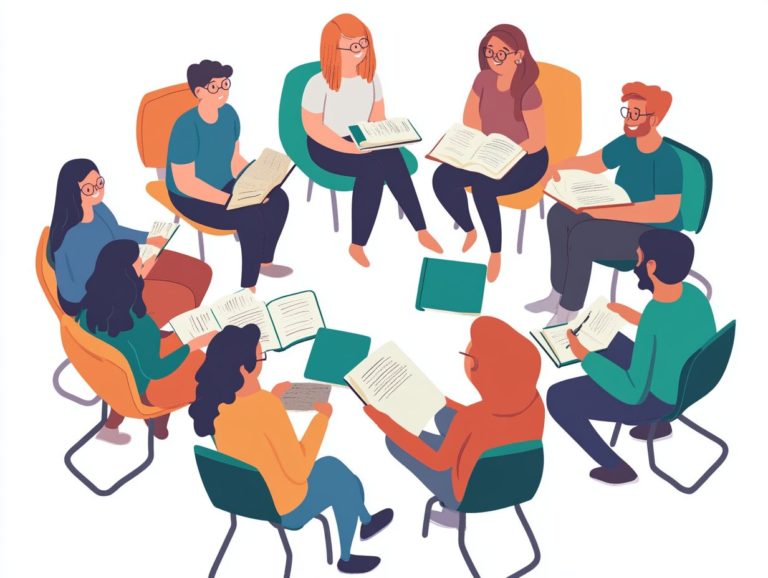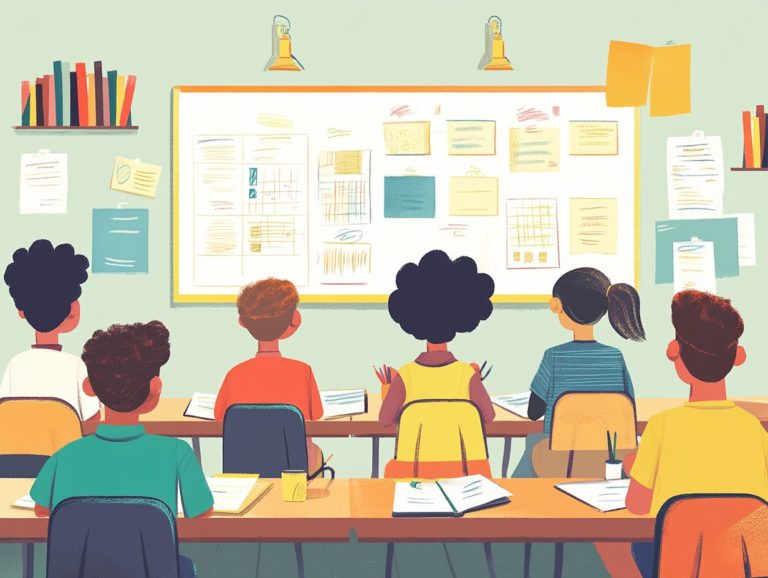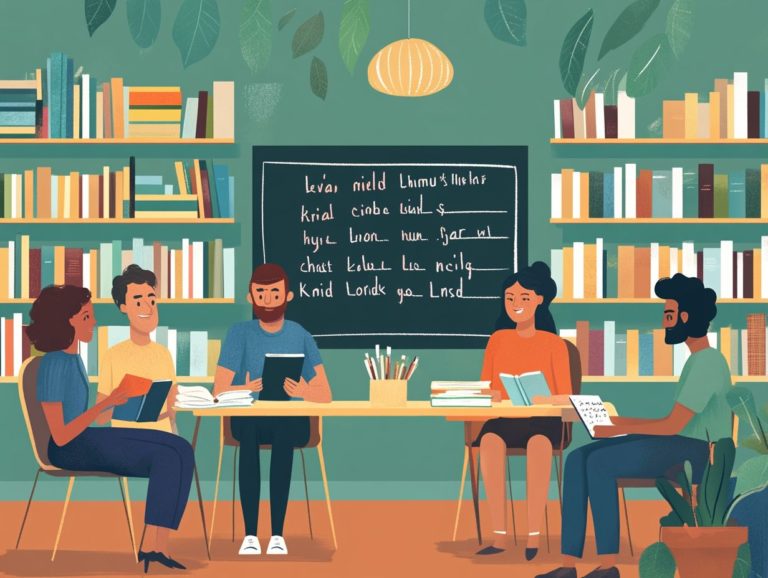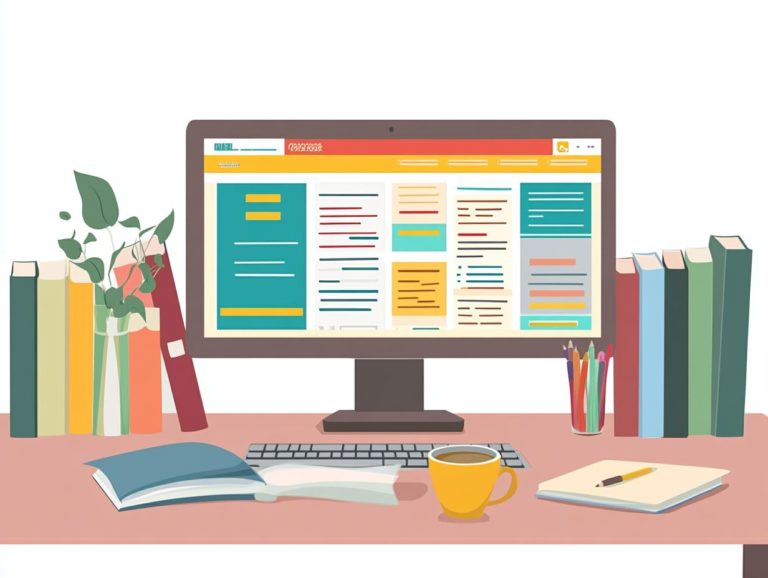The Importance of Listening in Language Learning
Listening is key to your success in language learning. It forms the foundation of effective communication.
This article explores the importance of listening. We ll distinguish between two types: passive and active listening. Plus, we ll offer practical strategies to refine your listening skills. You ll see how listening connects to speaking, tackle common obstacles, and learn techniques for seamlessly integrating listening practice into your study routine.
Immerse yourself in this exploration to discover how honing your listening skills can elevate your language learning experience!
Contents
- Key Takeaways:
- The Role of Listening in Language Learning
- Types of Listening in Language Learning
- Strategies for Improving Listening Skills
- The Connection Between Listening and Speaking
- Overcoming Barriers to Effective Listening
- Incorporating Listening into Language Learning Practice
- Frequently Asked Questions
- What is the importance of listening in language learning?
- How does listening help in language learning?
- Can listening improve speaking skills in language learning?
- How can I incorporate listening into my language learning routine?
- Es importante la escucha para el aprendizaje de idiomas incluso si no estoy en un entorno de habla nativa?
- C mo puedo evaluar mis habilidades de escucha en el aprendizaje de idiomas?
Key Takeaways:

- Active listening is crucial for language learning. It helps you understand and acquire new vocabulary and grammar.
- Effective strategies, like focusing on key words and using resources such as podcasts, can greatly improve your listening skills.
- Listening and speaking skills are closely connected. Listening aids in pronunciation and speaking fluency.
The Role of Listening in Language Learning
You need listening to succeed in language learning, especially when acquiring a second language. It significantly enhances your communication skills and comprehension.
By actively engaging in listening, you can improve your grasp of pronunciation, tone, and the contextual use of words. These elements are vital for effective speaking and understanding.
Teachers can use different strategies to enhance your listening skills. Engaging with authentic audio that reflects real-life conversations is crucial.
Mastering listening boosts your fluency and builds your confidence on your language acquisition journey.
Why Listening is Important
Listening is an essential skill in your language learning journey. It serves as the foundation for effective communication and plays a crucial role in developing your thinking skills and comprehension abilities.
This vital skill helps you grasp the subtleties of a conversation and encourages deeper engagement in academics and daily interactions.
In a classroom, your ability to listen attentively allows you to absorb information effectively, boosting your retention and understanding of complex subjects.
In real-life situations, you can practice active listening by summarizing what s been said or asking clarifying questions. These practices enhance your fluency and interaction in a second language.
By prioritizing listening, you can create richer dialogues and forge stronger connections with those around you.
Types of Listening in Language Learning
Understanding different listening styles active and passive is crucial for anyone wanting to elevate their comprehension and communication skills in a second language.
Active listening requires your full attention to the audio content, immersing yourself in the material. On the other hand, passive listening allows you to absorb the language more casually.
Each style serves its unique purpose in your language journey, enriching your overall learning experience.
Passive and Active Listening
Passive and active listening are two distinct yet complementary approaches to enhancing your language skills. Both play vital roles in your language acquisition and overall comprehension.
Passive listening lets you absorb information effortlessly like enjoying a podcast or watching a movie while active listening demands your engagement. You re not just a bystander; you re asking questions, summarizing, and diving into the conversation.
For example, when you actively listen during discussions, you not only strengthen your understanding but also foster richer dialogues. Meanwhile, passive listening exposes you to different accents and vocabulary, broadening your linguistic horizons.
Incorporating both strategies into your language learning routine can yield substantial benefits, such as improved vocabulary retention and greater contextual awareness.
You might discuss your favorite film afterward or jot down notes while listening to an audiobook both of which can sharpen your communication skills and boost your confidence in conversations.
What strategies will you try first to improve your listening skills?
Strategies for Improving Listening Skills

Improving your listening skills in language learning demands the adoption of effective strategies, techniques, and resources that align with your unique learning style and environment.
By proactively pursuing practice opportunities whether through engaging audio entertainment or educational tools such as FluentU you can significantly elevate your listening abilities. This approach really boosts your learning experience and ensures you receive constructive feedback that fosters your progress!
Effective Techniques and Resources
Effective techniques and resources for enhancing your listening skills encompass a range of methods. You can leverage platforms like FluentU and YouTube for diverse audio exposure.
You can also adopt techniques like breaking down spoken content into digestible segments for easier understanding. Additionally, dividing audio content by themes or topics sharpens your focus and enhances your ability to grasp context more effectively.
Numerous online resources await your exploration, such as podcasts tailored for various proficiency levels and interactive apps like Duolingo that offer real-life listening experiences. These tools cater to everyone, from beginners seeking fundamental comprehension to advanced learners looking to refine their skills with more intricate materials.
The Connection Between Listening and Speaking
The relationship between listening and speaking is fundamental to effective communication. You ll find that honing your listening skills elevates your speaking ability and enriches your overall engagement in conversations.
As a language learner, actively cultivating your listening competence likely enhances your pronunciation and refines your vocabulary choices, giving you the power to respond more appropriately in various interactions.
How Listening Affects Speaking Ability
Listening plays a vital role in enhancing your speaking ability. It allows you to internalize pronunciation, intonation, and the contextual nuances of language during your interactions.
When you engage in active listening, you expose yourself to a richer vocabulary and a variety of idiomatic expressions, significantly enriching your language repertoire. For instance, in a classroom setting, when you attentively listen to a teacher’s lecture, you pick up on nuanced phrases and the natural flow of conversation.
This gives you the power to express complex ideas with greater confidence. In everyday conversations, being an attentive listener enables you to grasp the responses and questions of others, equipping you to react appropriately and sharpen your conversational skills.
This reciprocal exchange not only enhances your fluency but also heightens your awareness of context. Ultimately, this improves your ability to articulate thoughts in a coherent and engaging manner.
Overcoming Barriers to Effective Listening
Overcoming barriers to effective listening is essential for you as a language learner. It significantly enhances your comprehension and communication skills.
Various challenges can impede your progress, such as too much information at once or a lack of context. By identifying these obstacles, you can develop tailored solutions to elevate your listening experience and outcomes.
Addressing these issues gives you the power to engage more deeply and effectively in your language journey.
Start applying these strategies today to transform your listening skills!
Common Challenges and Solutions
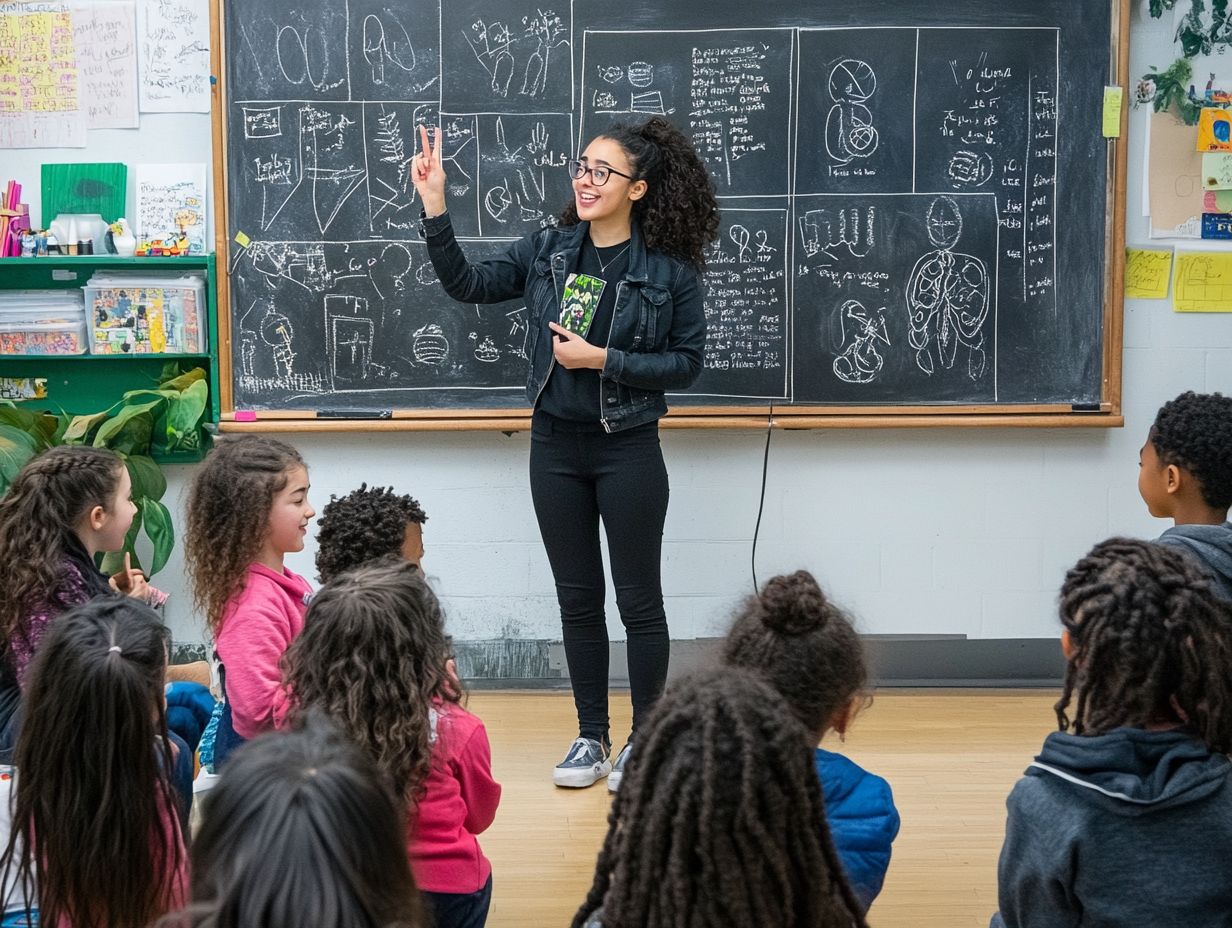
Common challenges in listening can include difficulties with accents, rapid speech, and a lack of contextual knowledge. But don t worry there are practical solutions to help you navigate these hurdles.
It can be tough to catch the nuances of different accents, but you’ll get there! One effective strategy is to immerse yourself in a variety of audio resources, like podcasts or movies in your target language, featuring diverse speakers.
Fast speech can feel overwhelming. Start with slower recordings, and gradually increase the speed as your confidence grows. Create opportunities for feedback; discussing your comprehension with teachers or peers can offer invaluable insights.
Seeking out language exchange partners sharpens your listening skills and provides contextual knowledge, deepening your understanding and ultimately leading to a more comprehensive mastery of the language.
Incorporating Listening into Language Learning Practice
Incorporating listening into your language learning practice is essential for building your skills. It provides exposure to authentic language use and significantly enhances your overall comprehension.
By thoughtfully integrating listening exercises into your daily study routine, you can elevate your language acquisition and fluency in ways that truly resonate with real-world contexts.
Ways to Integrate Listening into Study Habits
Integrating listening into your study habits can be done smoothly through various methods, including personalized resources and dedicated time for practice.
To boost your listening skills, consider using podcasts and audiobooks that match your interests. This provides an engaging way to absorb new vocabulary and familiarize yourself with different accents.
Educational tools like FluentU offer interactive videos that make language immersion an enjoyable experience. Conversation exchanges create invaluable real-life communication opportunities.
Consistency is key; by setting a regular schedule even short daily sessions you can see significant improvements over time.
Embrace a variety of activities, from listening to music in your target language to participating in language meetups. This keeps your motivation high and fosters a well-rounded skill set.
Frequently Asked Questions
What is the importance of listening in language learning?
Listening is a crucial aspect of language learning, as it forms the foundation for understanding and grasping a new language. It enables learners to hear and process the sounds, rhythms, and intonations of a language, helping them produce correct pronunciation and improve their overall communication skills.
How does listening help in language learning?

Listening helps learners develop their listening comprehension skills, allowing them to understand spoken language in real-time. This skill is essential for communication, enabling learners to follow conversations, understand instructions, and gather information from various sources.
Can listening improve speaking skills in language learning?
Yes, listening is closely related to speaking skills in language learning. By listening to native speakers, learners can enhance their pronunciation, intonation, and vocabulary, which directly impacts their overall speaking abilities. It also helps them feel more confident in their communication.
How can I incorporate listening into my language learning routine?
You can incorporate listening into your language learning routine by regularly listening to native speakers through podcasts, music, or audiobooks. You can also practice listening comprehension exercises or engage in conversations with native speakers to improve your listening skills.
Es importante la escucha para el aprendizaje de idiomas incluso si no estoy en un entorno de habla nativa?
La escucha es crucial para aprender idiomas.
Hoy en d a, la tecnolog a te permite acceder a muchos recursos, como p dcast y videos, para practicar con hablantes nativos.
C mo puedo evaluar mis habilidades de escucha en el aprendizaje de idiomas?
Practica ejercicios de comprensi n auditiva para evaluar tus habilidades.
Pide retroalimentaci n a un hablante nativo o nete a pruebas de competencia ling stica.


